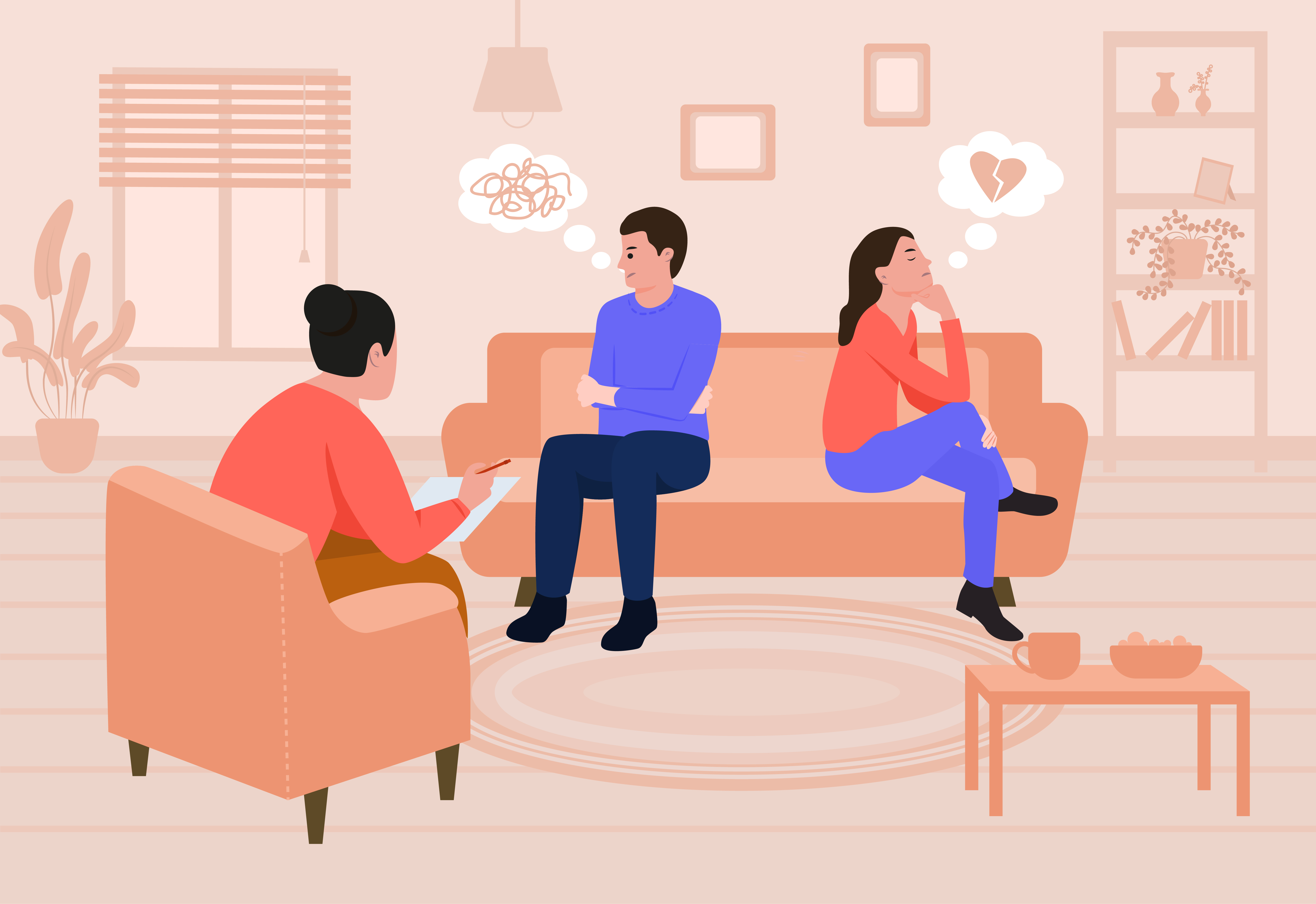In modern relationships, couples often find themselves navigating through challenges that can strain the bonds of love and understanding. Couple counselling, a powerful therapeutic intervention, has emerged as a beacon of hope for those seeking to rebuild, strengthen, and revitalize their connections. In this comprehensive article, we will delve into the intricacies of couple conselling therapy in India, exploring how and why it can be a transformative journey for couples facing various challenges. Couple counselling, also known as couples therapy or marriage counselling, is a specialized form of psychotherapy designed to help couples address and resolve issues within their relationship. It provides a safe and supportive space for partners to explore their feelings, enhance communication, and work collaboratively toward creating a healthier and more fulfilling relationship.
Therapy for couples addresses common relationship issues, including:
1. Communication Breakdown:
A prevalent challenge in relationships, therapy for couples focuses on enhancing communication skills. It aids partners in expressing needs and promotes active listening to foster mutual understanding.
2. Conflict Resolution:
Acknowledging conflicts as inevitable, couple counselling equips couples with tools to navigate disagreements constructively. This prevents conflicts from escalating into harmful patterns, fostering healthier resolutions.
3. Intimacy and Connection:
Over time, couples may experience a decline in intimacy. therapy for couples helps partners rediscover emotional and physical aspects, reigniting passion and connection within the relationship.
4. Trust Issues:
Recognizing trust as fundamental, therapy for couples addresses trust issues. It assists partners in rebuilding and strengthening trust through open communication, transparency, and commitment.
5. Life Transitions:
Major life changes, like marriage or career shifts, can impact relationships. Counselling guides couples in navigating these transitions, ensuring a smooth adjustment and fostering mutual support.
Couple counselling is a collaborative process typically involving both partners, though individual sessions may be recommended to address personal concerns. In these sessions, therapists create a safe and non-judgmental space for open communication, allowing each partner to freely express their thoughts and emotions. The process unfolds in several key stages. Firstly, an initial assessment is conducted to understand the relationship dynamics, identify key issues, and establish therapeutic goals. This involves gathering information about the history of the relationship, individual backgrounds, and current challenges. Collaboratively, the therapist and the couple then set specific goals, serving as a roadmap guiding sessions toward tangible outcomes that contribute to overall relationship improvement.
Communication skills are often a focal point in couple counselling. Partners learn to express themselves assertively, actively listen to each other, and validate perspectives. Effective communication forms the foundation for conflict resolution and building a stronger connection. Emotions are explored and expressed in a safe environment, fostering understanding and connection between partners. The therapist introduces various conflict resolution strategies, guiding the couple through tools that empower them to address disagreements constructively. Homework assignments may be given to reinforce learning, involving practices like new communication techniques, conflict resolution strategies, or activities promoting connection.
In India, the increasing prominence of couples seeking professional guidance reflects the evolving landscape of relationships. Couples in India turn to counselling for several reasons:
1. Cultural Dynamics:
India's rich cultural tapestry introduces unique relationship dynamics influenced by traditions, societal expectations, and family structures. couple conselling therapy in India is tailored to understand and address these cultural nuances, providing couples with culturally sensitive guidance.
2. Changing Societal Norms:
As societal norms evolve, couples face challenges in balancing traditional values with modern expectations. therapy for couples in India helps navigate these changes, fostering open dialogue and understanding.
3. Stressors in Urban Life:
Urbanization has brought about stressors, including demanding careers, financial pressures, and the fast-paced nature of city life. Couple counselling provides a space for couples to address these stressors and build resilience in their relationship.
4. Interfaith and Inter-caste Marriages:
With an increase in interfaith and inter-caste marriages, couples encounter unique challenges related to cultural differences. therapy for couples offers a supportive environment to navigate these complexities and build a strong foundation.
5. Technology and Relationship Dynamics:
The pervasive influence of technology on modern relationships introduces issues like excessive screen time, communication breakdowns, or digital infidelity. Couple conselling therapy in India helps establish healthy boundaries and fosters reconnection in the digital age. Seeking professional guidance through counselling in India is an empowering step toward building and maintaining healthier, more fulfilling relationships.
Couples therapy in India serves as a transformative journey for couples facing a myriad of challenges. By providing a safe and supportive space, addressing cultural nuances, and offering practical tools for communication and conflict resolution,counselling plays a vital role in strengthening relationships. As more couples recognize the profound impact of seeking professional guidance, the landscape of relationships in India is evolving towards greater understanding, empathy, and love. Embrace the transformative power of counselling and embark on a journey towards a more fulfilling and resilient relationship.
[Image by macrovector on Freepik]

